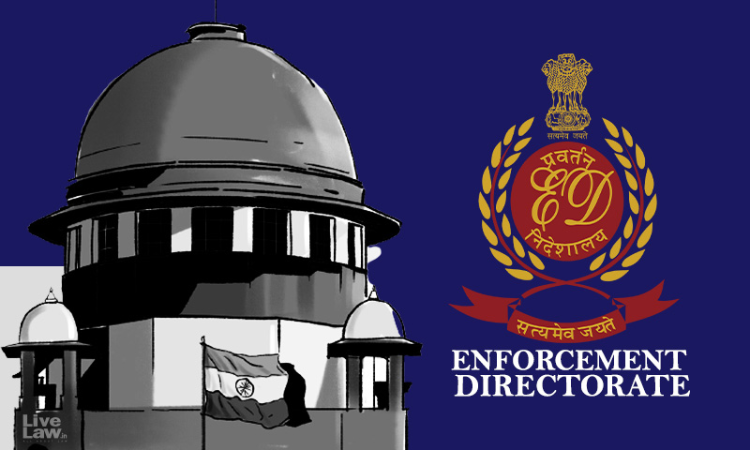Low Conviction Rates In ED Cases Not A Ground To Decide Validity Of PMLA Provisions, Says Supreme Court During Hearing
Mehal Jain
17 Feb 2022 7:31 PM IST

Next Story
17 Feb 2022 7:31 PM IST
The Supreme Court on Thursday remarked that the constitutional validity of the provisions of the PMLA Act cannot be judged on the basis of the performance of the Executive or the police or the inability to take the prosecution to its logical end or the low rate of conviction or the low rate of appeals against acquittal.On Wednesday, Senior Advocate Maneka Guruswamy, for one of the...
